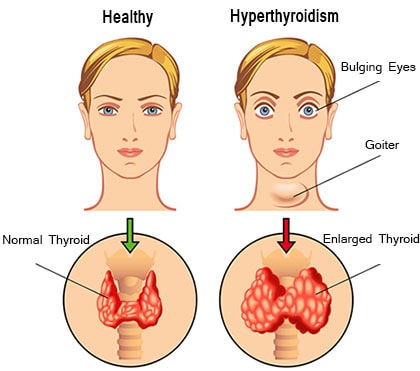Cutting-Edge Research On Thyroiditis: Promising Advances And Breakthroughs
Thyroiditis, a condition characterized by inflammation of the thyroid gland, affects millions of individuals worldwide. While traditionally managed through medications and lifestyle modifications, recent years have witnessed remarkable advancements in understanding and treating thyroiditis. This article delves into the forefront of thyroiditis research, exploring promising breakthroughs and cutting-edge approaches that offer hope for improved management and outcomes for patients.
Advances in Understanding Thyroiditis
Researchers have made significant strides in unraveling the intricate mechanisms underlying thyroiditis. One key area of focus is the role of the immune system in driving inflammation within the thyroid gland. Studies have identified various autoimmune pathways implicated in autoimmune thyroiditis, shedding light on potential targets for therapeutic intervention. Additionally, investigations into the genetic predisposition to thyroiditis have uncovered novel susceptibility genes, providing insights into the hereditary component of the disease.
Precision Medicine Approaches
The concept of precision medicine, which tailors treatment strategies to individual patients based on their unique genetic makeup, has gained traction in thyroiditis research. By leveraging genetic and molecular profiling techniques, clinicians can better predict disease progression and tailor treatment regimens accordingly. Personalized therapies, including targeted biologics and immunomodulatory agents, hold promise for optimizing outcomes and minimizing adverse effects in patients with thyroiditis.
Immunomodulatory Therapies
Immunomodulatory therapies represent a paradigm shift in the management of autoimmune thyroiditis. Biologic agents targeting specific immune pathways, such as cytokines or immune cells, offer the potential to modulate the underlying inflammatory processes more precisely. Clinical trials investigating the efficacy of these agents have shown promising results, with improvements in thyroid function and reduction in disease activity observed in some patients. Furthermore, combination therapies involving immunomodulators and traditional medications hold promise for synergistic effects and improved clinical outcomes.
Gene Editing and Gene Therapy
The development of CRISPR-Cas9 and other recent gene editing technologies has created new therapeutic options for thyroiditis. Researchers are exploring the possibility of using gene editing to correct genetic mutations associated with autoimmune thyroiditis, potentially halting disease progression or even reversing its course. Moreover, gene therapy approaches aimed at modulating immune responses or restoring thyroid function are being investigated as potential future treatments for thyroiditis.
Microbiome Research
The role of the gut microbiome in immune regulation and inflammation has garnered increasing attention in thyroiditis research. Studies have revealed alterations in the gut microbiota composition in individuals with thyroiditis, suggesting a potential link between gut dysbiosis and disease pathogenesis. Therapeutic interventions targeting the gut microbiome, such as probiotics or dietary interventions, hold promise for modulating immune responses and mitigating thyroid inflammation. Further research into the gut-thyroid axis may unveil novel therapeutic targets for the management of thyroiditis.
Telemedicine and Digital Health Solutions
Advancements in telemedicine and digital health technologies are revolutionizing the management of thyroiditis. Telemedicine platforms enable remote consultations, monitoring, and management of patients with thyroiditis, improving access to specialized care and facilitating patient-centered approaches. Additionally, digital health solutions, including mobile applications and wearable devices, empower patients to track their thyroid function, medication adherence, and lifestyle factors, thereby enhancing self-management and engagement in treatment.
Challenges and Future Directions
While the landscape of thyroiditis research is marked by promising advances, several challenges remain to be addressed. Limited access to advanced therapies, high treatment costs, and disparities in healthcare access pose barriers to optimal care for patients with thyroiditis. Furthermore, the complex interplay of genetic, environmental, and immunological factors underlying thyroiditis necessitates a multidisciplinary approach to research and treatment. Future directions in thyroiditis research include the development of biomarkers for early detection and prognostication, the exploration of novel therapeutic targets, and the implementation of holistic approaches integrating lifestyle interventions and psychosocial support.
Conclusion
In conclusion, cutting-edge research on thyroiditis holds promise for revolutionizing the management of this prevalent condition. From precision medicine approaches to immunomodulatory therapies, gene editing technologies, microbiome research, and digital health solutions, a myriad of innovations are reshaping the landscape of thyroiditis care. By harnessing these advancements and addressing existing challenges, clinicians and researchers can pave the way for personalized, effective, and patient-centered management of thyroiditis in the years to come.








